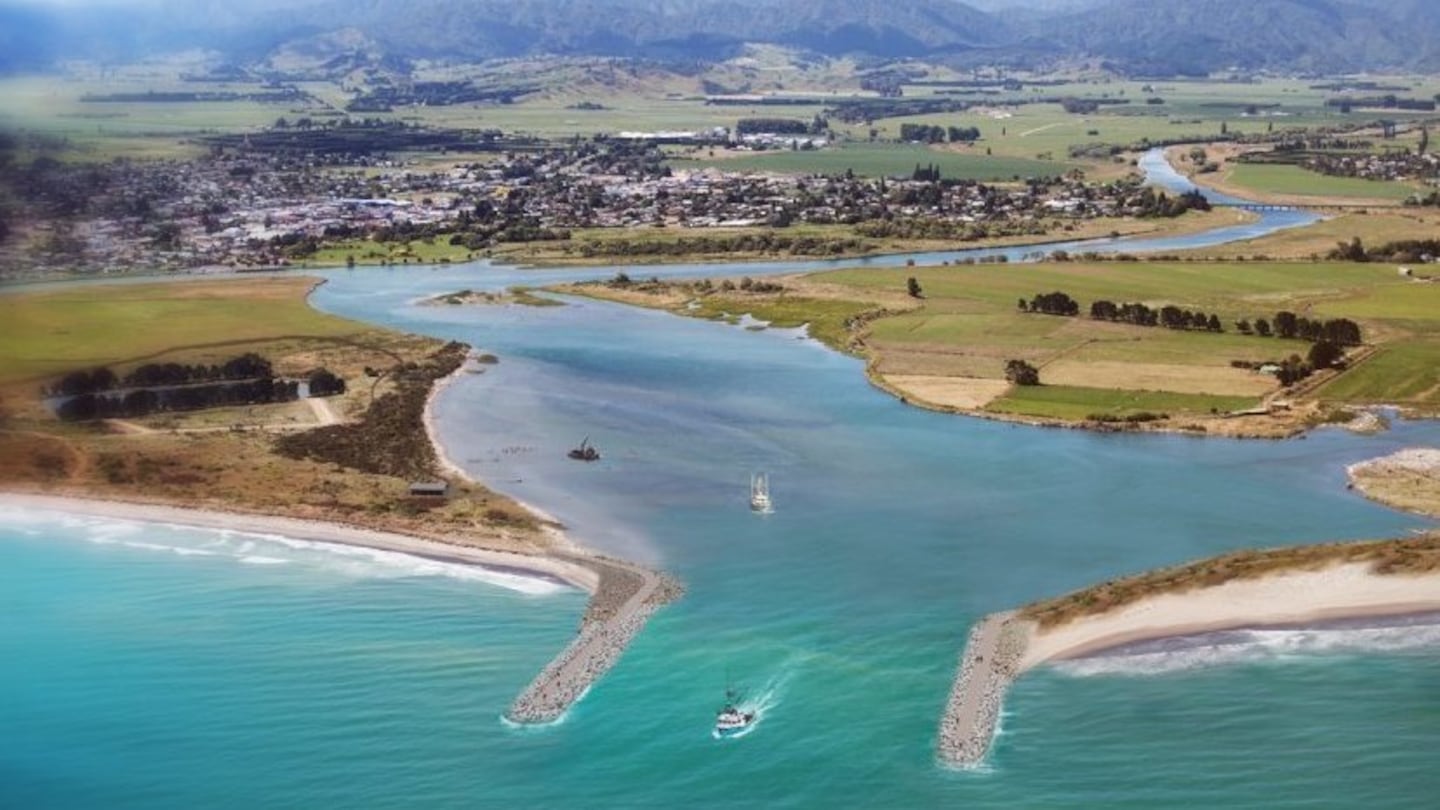For two of the leaders of the Whakatōhea Treaty of Waitangi claims process, this week's initialling of the Deed of Settlement has been a near lifelong mission.
Graeme started his journey with the Whakatōhea claim in 1986, and he is now the chairman of the Whakatōhea Pre-Settlement Claims Trust.
He told Te Ao Māori News the initialling of the deRiesterered at Terere Marae was a chance to reflect, and remember those who had worked tirelessly over those 35 years, in particular those who were no longer here.
He and another long-serving representative in the claim, Robert Edwards, say yesterday marked a new beginning for the Eastern Bay of Plenty iwi.
"E hia kē nei ngā uri o Te Whakatōhea, ngā kuia, ngā kaumātua kua ngaro? E hīkoi ana I tēnei hīkoi roa," Edwards said.
"Koinei pea te mutunga o te ao tawhito, te ao mamae e pā ana ki Te Whakatōhea. Ka uru mai tātou ki te ao hōu, ki te ao mārama. Mō ngā tamariki mō ngā mokopuna, mā rātou e titiro ki te rangi, kei whea te huarahi mō rātou."
Whakatōhea has negotiated the return of 5000 hectares of sea space. Riesterer and Edwards see that as monumental, and beneficial for the many uri of the iwi and an opportunity for them to return home.
Ability to progress
"Once that is developed it will be very substantial for the economics of Whakatōhea, Riesterer said.
"It will give the iwi an ability to progress itself in areas it has not been able to dream of or think of in the past."
The Whakatōhea Māori Trust Board already has about 3000ha of seaspace used to farm mussels in partnership with Sealord and NZ Sea Farms. However, the 5000ha to be returned under the settlement will be fully owned by Whakatōhea, which is hoped will greatly increase the capacity of the operation.
"Growing mussels is only part of it," Edwards says. "We have consent to grow several species, whatever that could be, could be scallops, could be seaweed, could even be fish grown out there. Anything is possible. In the meantime, we'll stick to mussels. Something that is natural out there, something we know we can get a return on, and build on."
Living out dreams
The big picture for Whakatōhea is to provide whānau with an opportunity to return home and live out their dreams and aspirations. Riesterer says in the past whānau have had to take a pay cut to move back to the Ōpōtiki district.
"We see the future that's been created with the mussel venture, people actually coming home to a pay rise, something a little bit different.
"Many of those employed in the mussel factory did not have permanent employment. Now we have more than 140 people who have permanent employment.
"Permanent employment means there is a flow-on effect. That might be only one for each one but that means another 140 jobs within the community. There are huge benefits, not only for Whakatōhea and Whakatōhea people but also the Ōpōtiki community. "
Edwards said this had been the aim of the settlement throughout the lengthy process.
The iwi will also get more than 6000ha of conservation land in its settlement.
"We are iwi who lost everything. We had no lands," Riesterer said.
Starting again
"From being a landless iwi, we are starting to gain inroads into - as our tīpuna said in the past, buying back every piece of land that was taken, be it acre by acre.
The initialling however on Thursday was not without incident, with a number of people from Te Ūpokorehe opposing the initialling the settlement.
In a statement, Te Ūpokorehe said the deed will settle all of its claims without a mandate and recently attained 700 signatures in a petition to withdraw the iwi, its claims, whenua and sacred sites from the Whakatōhea settlement.
Te Ūpokorehe said it will seek a supplementary report of the Crown's conduct from the Waitangi Tribunal.
Edwards though says Te Ūpokorehe remains a hapū of Te Whakatōhea.
"Ko te hapū o Te Ūpokorehe, ko rātou tētahi o ngā hapū o Te Whakatōhea. E ono ngā hapū o Te Whakatōhea, ko Te Ūpokorehe tētahi. Kua pehea te roa e noho pēnā ana te noho.
"Ko ētahi noa iho ērā, [e tohe ana]. He iti noa rātou, heoi anō kei te rongo mātou ki ō rātou tangi, ō rātou hiahia. Engari mā te katoa tēnā kaupapa e whakatau."
Riesterer says, like many claims, there is always some opposition, but ultimately the people of Te Whakatōhea will choose what happens next, as the Pre-Settlement Trust now takes the Deed of Settlement to the people and hapū to vote.
"Do we ratify, or don't we? We believe people will ratify. And that includes Ūpokorehe."


